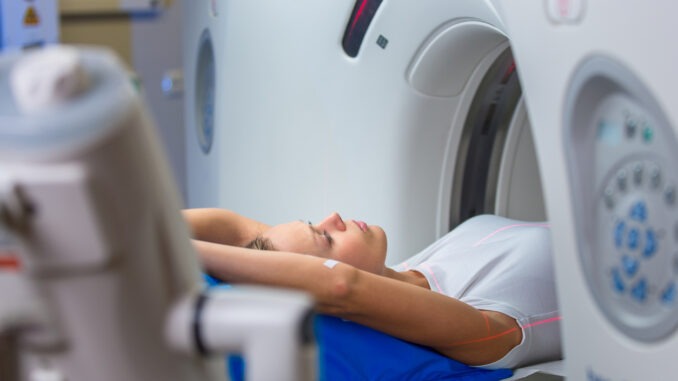
As reported by the BBC, the government is setting up 19 more diagnostic centres in communities across England to help tackle the Covid backlog
Ninety one are already open and have delivered more than 2.4m tests, checks and scans since last summer, ministers say.
It is hoped the centres will speed up access to services for patients, thereby reducing waiting times.
This is a record high, and is being driven by hospitals struggling to get back to full strength after the pandemic – rather than extra demand, BBC analysis suggests.
Although the number of people waiting longer than two years for routine operations in England has fallen dramatically since January, health experts say there is still a mountain to climb to reduce the numbers waiting more than a year.
Winter is likely to bring more delays and pressure, particularly with strikes by NHS nurses and ambulance workers also planned in December.
A taskforce, made up of academics and health experts, has been set up to help unlock space capacity in the private sector to reduce waiting times. It is meeting for the first time at 10 Downing Street on Wednesday.
Health and Social Care secretary Steve Barclay said the taskforce would look at sensible ways of using “all existing capacity to slash waiting lists, while ensuring the NHS always remains free at the point of use”.
This is likely to include collaboration to speed up the number of eye, knee and hip operations being performed, and maximising the use of hospital theatres, beds and outpatient settings.
Mr Barclay said: “The NHS is facing an unprecedented challenge to tackle Covid backlogs.
“Hardworking staff have made strong progress but I want to turbocharge our current plans to bust the backlog and help patients get the treatment they need.”
GPs can refer patients to community diagnostic centres so that they can access life-saving checks and scans, and be diagnosed for a range of conditions, without travelling to hospital.
Some are located in football stadiums and shopping centres and can offer MRI and CT scans, as well as x-rays.
In September, according to the government, the hubs delivered 11% of all diagnostic activity – and its ambition is for 40% to be achieved by 2025.
The government wants to eliminate 18-month waits by April 2023, and waits of longer than one year by March 2025.
It has committed to investing an extra £8bn into health and social care in 2024-25.
NHS England’s national director of elective recovery, Sir James Mackey, said NHS staff were working “incredibly hard” to tackle the Covid backlog, adding that it was important to continue to use the independent sector to get waiting lists down.


Be the first to comment